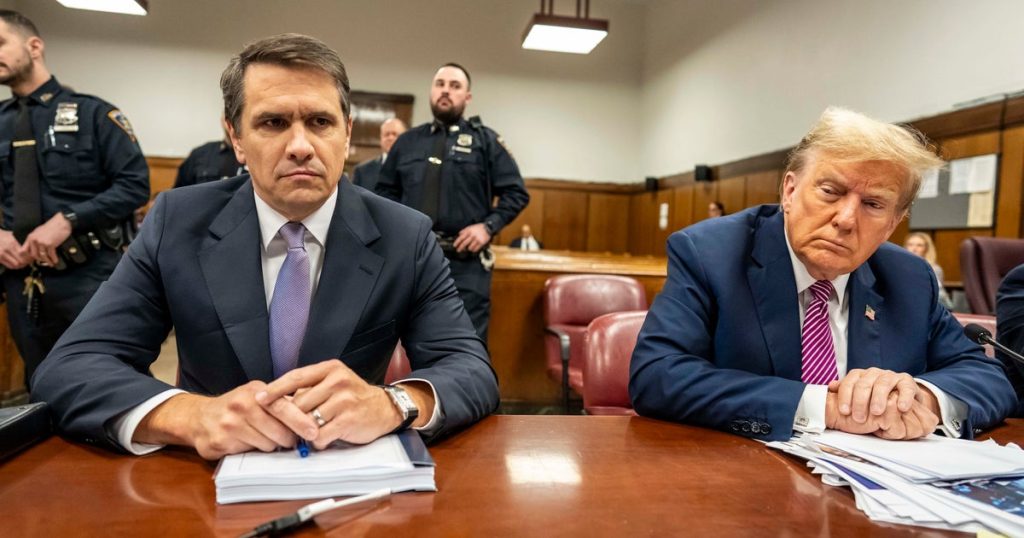In a significant shift within the U.S. government, the Department of Justice has named Todd Blanche as the acting Librarian of Congress, a role with profound implications for the nation’s largest library. Blanche, who previously served as President Donald Trump‘s personal criminal attorney, steps into this position following the controversial dismissal of Carla Hayden, the first woman and first Black person to hold the role since it was established. The appointment of Blanche arrives during a tumultuous time, as questions surrounding the library’s leadership and governance surface.
In addition to Blanche’s appointment, two other officials from the Justice Department, Paul Perkins and Brian Nieves, have received temporary responsibilities linked to the Library of Congress, further changing the dynamic at this vital institution tasked with preserving the nation’s cultural heritage. The decisions surrounding these appointments and their implications will shape the future of the library’s operations and its role as a research arm for Congress.
This article explores the circumstances and repercussions of these appointments in detail.
| Article Subheadings |
|---|
| 1) Background of the Librarian of Congress Position |
| 2) The Significance of the Recent Appointments |
| 3) Historical Context: Carla Hayden’s Tenure |
| 4) Congressional Reactions and Controversies |
| 5) Implications for the Future of the Library |
Background of the Librarian of Congress Position
The Librarian of Congress is the head of the Library of Congress, an esteemed institution established in 1800. The role encompasses the oversight of the nation’s largest library, which stretches its holdings across millions of documents, including books, films, and audio recordings. The Librarian serves as a key figure in maintaining the library’s immense collections and functions as both a research and copyright authority. Given the historical and cultural significance of the library, the appointment of its head is often scrutinized and viewed as a reflection of broader governmental priorities.
The Significance of the Recent Appointments
The appointment of Todd Blanche as the acting Librarian of Congress is notable for several reasons. His background as former legal counsel for President Trump raises questions regarding the politicization of such a pivotal role. With fellow Justice Department officials Paul Perkins and Brian Nieves stepping into key positions, the potential for a Justice Department influence over library governance has heightened concerns among some lawmakers and cultural advocates. This trio now oversees an institution that serves as Congress’s primary research arm and manages the nation’s copyright office, responsibilities that require both legal acumen and an affinity for the library’s educational mission.
Historical Context: Carla Hayden’s Tenure
Former Librarian Carla Hayden, who held the position since 2016, was a pioneering figure in the library’s history, being the first woman and the first Black individual to serve in the role. During her tenure, she implemented significant reforms aimed at modernizing the library, improving public access, and embracing digital advancements. Her removal raises substantial questions regarding the priorities of the current administration and has sparked outrage among those who value diversity and equity in cultural institutions. The circumstances surrounding her firing were contentious, with critics arguing that it was unwarranted and politically motivated.
Congressional Reactions and Controversies
In the aftermath of these appointments, responses from Congress have been mixed. Notably, Joe Morelle, a Democratic representative, has called for an inspector general’s review regarding Hayden’s dismissal, citing the need for transparency and accountability in such critical appointments. Meanwhile, Senate Minority Leader Chuck Schumer has voiced his concerns, advocating for a change in the appointment process for the Librarian of Congress to be made by a congressional commission rather than a presidential decision. Such proposals aim to mitigate political influence over cultural institutions and promote stability in leadership roles.
Implications for the Future of the Library
The future of the Library of Congress under the new leadership remains uncertain. With the library playing an essential role in preserving the nation’s cultural heritage and acting as a vital research center, the decisions made by Blanche, Perkins, and Nieves will have significant consequences moving forward. Their backgrounds, shaped by legal rather than academic or library science experiences, stimulate discussions about the direction in which the library will head. Focused on legal matters, there are concerns that initiatives supporting public engagement and resource accessibility could take a backseat.
| No. | Key Points |
|---|---|
| 1 | Todd Blanche has been appointed as the acting Librarian of Congress amidst significant political controversy. |
| 2 | The appointment raises concerns regarding the potential politicization of cultural institutions. |
| 3 | Carla Hayden’s term marked a progressive era for the Library of Congress, emphasizing access and diversity. |
| 4 | Congressional leaders are calling for reforms in the appointment process of the Librarian of Congress. |
| 5 | The new leadership’s focus may shift towards legal oversight rather than public engagement and library access initiatives. |
Summary
The recent changes in the leadership of the Library of Congress reflect broader tensions within U.S. governance regarding the appointment of institutional heads. The implications of having individuals with legal backgrounds in such culturally significant roles raise fundamental questions about priorities and values in a time of heightened scrutiny. As new leadership commences, the potential impact on the library’s mission, accessibility, and governance landscape will need careful watch, particularly amid ongoing public discourse surrounding representation and accountability in cultural institutions.
Frequently Asked Questions
Question: What role does the Librarian of Congress serve?
The Librarian of Congress oversees the largest library in the world, manages its vast collections, and ensures public access to its resources.
Question: Why was Carla Hayden’s dismissal controversial?
Hayden’s dismissal was viewed as politically motivated by many, as she was the first woman and person of color in a historically significant position.
Question: What are the implications of the new appointments for the library’s direction?
The new appointments may shift the library’s focus away from public access and engagement initiatives toward legal oversight, raising concerns about inclusivity and innovation.


